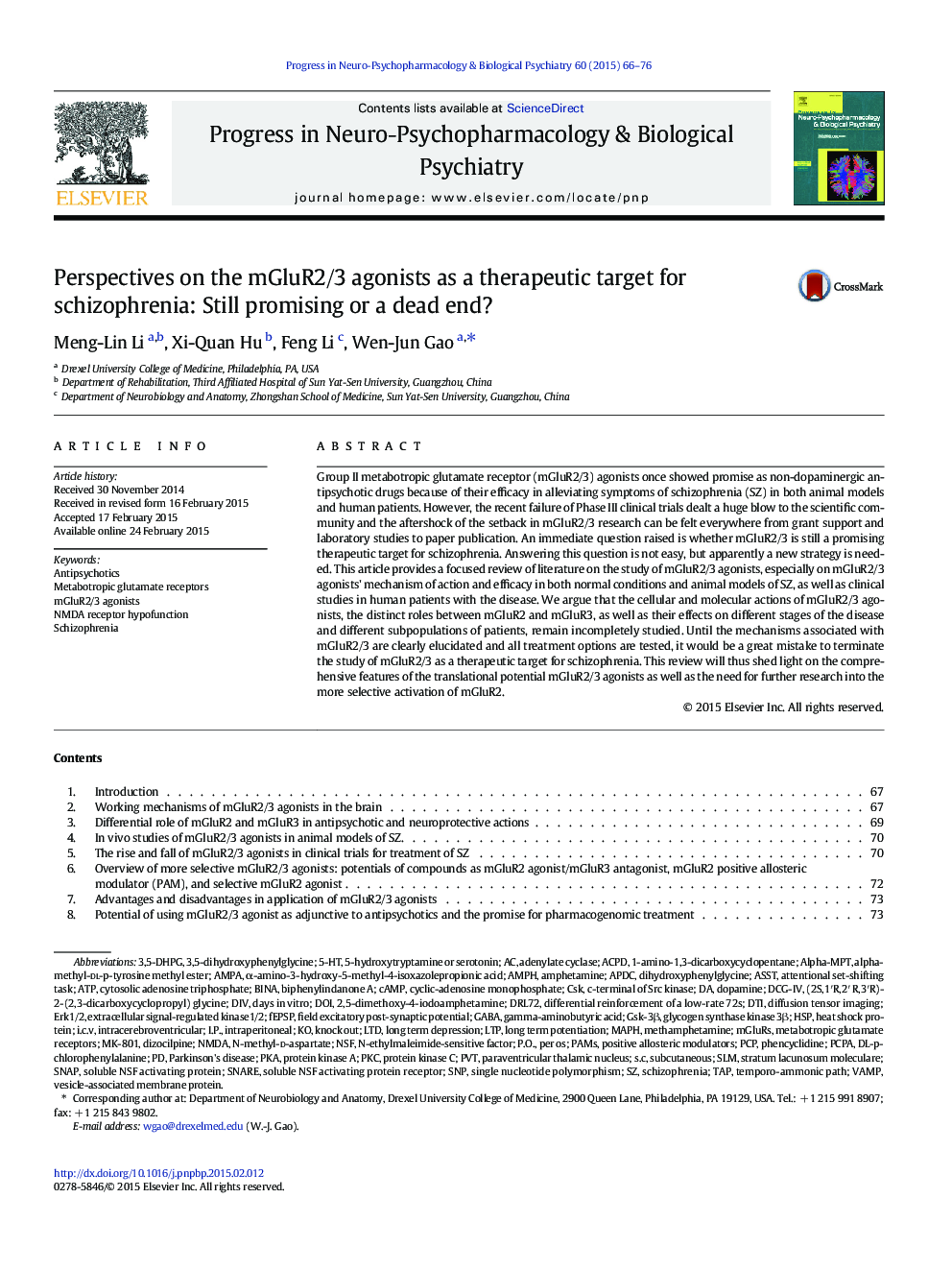| Article ID | Journal | Published Year | Pages | File Type |
|---|---|---|---|---|
| 2564734 | Progress in Neuro-Psychopharmacology and Biological Psychiatry | 2015 | 11 Pages |
•mGluR2/3 as a therapeutic target for schizophrenia•Working mechanisms of mGluR2/3 agonists in the brain•Differential role of mGluR2 and mGluR3 in antipsychotic and neuroprotective action•Studies of mGluR2/3 agonists in animal models of schizophrenia•mGluR2/3 agonist as adjunct to antipsychotics and promise of pharmacogenomics
Group II metabotropic glutamate receptor (mGluR2/3) agonists once showed promise as non-dopaminergic antipsychotic drugs because of their efficacy in alleviating symptoms of schizophrenia (SZ) in both animal models and human patients. However, the recent failure of Phase III clinical trials dealt a huge blow to the scientific community and the aftershock of the setback in mGluR2/3 research can be felt everywhere from grant support and laboratory studies to paper publication. An immediate question raised is whether mGluR2/3 is still a promising therapeutic target for schizophrenia. Answering this question is not easy, but apparently a new strategy is needed. This article provides a focused review of literature on the study of mGluR2/3 agonists, especially on mGluR2/3 agonists' mechanism of action and efficacy in both normal conditions and animal models of SZ, as well as clinical studies in human patients with the disease. We argue that the cellular and molecular actions of mGluR2/3 agonists, the distinct roles between mGluR2 and mGluR3, as well as their effects on different stages of the disease and different subpopulations of patients, remain incompletely studied. Until the mechanisms associated with mGluR2/3 are clearly elucidated and all treatment options are tested, it would be a great mistake to terminate the study of mGluR2/3 as a therapeutic target for schizophrenia. This review will thus shed light on the comprehensive features of the translational potential mGluR2/3 agonists as well as the need for further research into the more selective activation of mGluR2.
